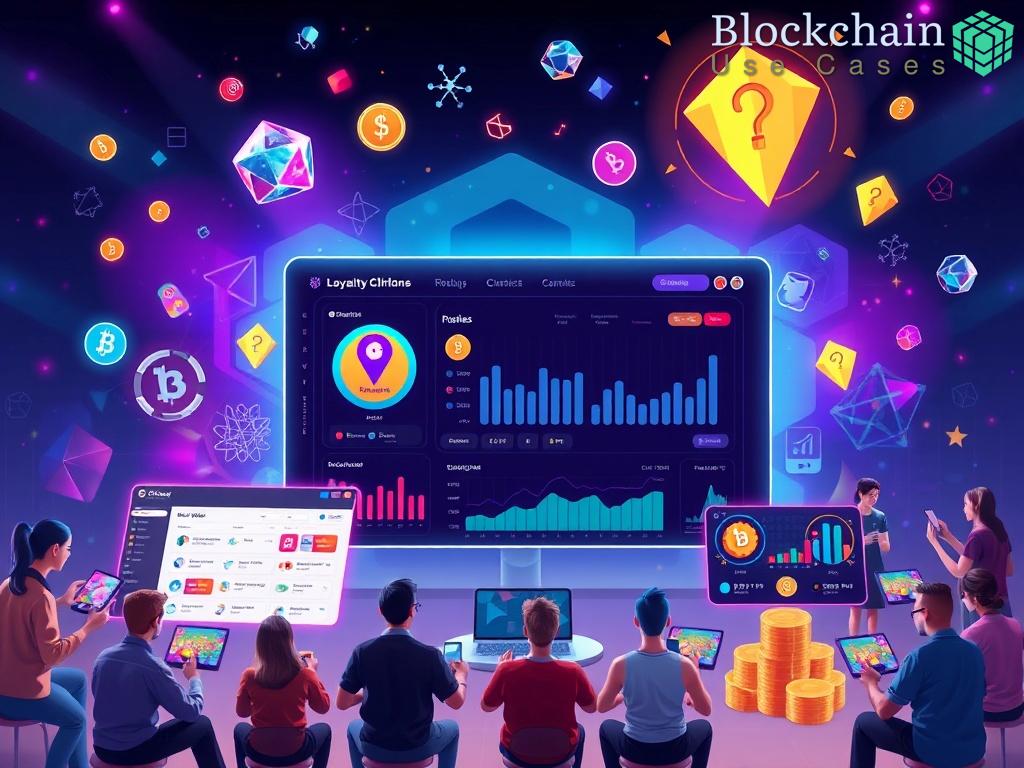The Role of Blockchain in Gaming Loyalty Programs
The gaming industry has always been at the forefront of technological innovation, and now it is set to undergo a significant transformation with the implementation of blockchain technology in loyalty programs. This paradigm shift not only enhances security but also builds trust among players, allowing them to engage more deeply with their favorite games. As players demand more value and transparency in their interactions, blockchain emerges as a powerful solution to meet these expectations.
Blockchain technology provides a decentralized ledger that ensures all transactions are recorded transparently and securely. This feature is particularly appealing for gaming loyalty programs, which often struggle with issues such as fraud, lack of trust, and opaque reward systems. By leveraging blockchain, game developers can offer players unparalleled advantages:
- Enhanced Security: Transactions are immutable and cannot be altered, providing players with peace of mind.
- Increased Transparency: Players can track their rewards and transactions, fostering trust in the loyalty program.
- Ownership of Assets: Players can truly own their in-game rewards, as they exist on a blockchain and can be transferred or sold without restrictions.
- Interoperability: Players can use their loyalty rewards across different games, enhancing the overall gaming experience.
The integration of blockchain technology into gaming loyalty programs is already yielding innovative use cases that demonstrate its potential. Here are some prominent examples:
| Use Case | Description |
|---|---|
| Tokenized Rewards | Players earn tokens for completing challenges or milestones, which can be traded for in-game items or converted to cryptocurrency. |
| Decentralized Marketplaces | Players trade their rewards on decentralized platforms, ensuring fair pricing and eliminating middlemen. |
| Smart Contracts | Automated contracts execute transactions based on predefined conditions, ensuring players receive their rewards instantly and without hassle. |
The future of gaming loyalty programs is bright, thanks to the disruptive potential of blockchain technology. As more developers adopt decentralized systems, players can expect to see a dramatic improvement in how rewards are managed, with greater incentives to engage and participate. The enhanced security, transparency, and ownership of assets that blockchain offers will not only retain players but also attract new ones, leading to a more vibrant gaming community. The evolution of loyalty programs through blockchain is not just a trend; it is the next step in redefining how players interact with games and rewards.
Smart Contracts for Automated Reward Distribution
As the gaming landscape continues to evolve, the advent of smart contracts offers a transformative approach to the distribution of rewards within loyalty programs. These self-executing contracts, with the terms of the agreement directly written into code, have the potential to revolutionize how players receive their rewards, ensuring an efficient, transparent, and secure process. By eliminating the need for intermediaries, smart contracts empower both game developers and players, creating a more streamlined experience that aligns perfectly with the decentralized ethos of blockchain technology.
One of the most significant advantages of utilizing smart contracts in gaming loyalty programs is their ability to automate reward distribution based on predefined conditions. For instance, when a player completes a specific challenge or reaches a milestone, the smart contract can automatically trigger the reward allocation without any manual intervention. This not only reduces administrative overhead for developers but also ensures that players receive their rewards instantly, enhancing player satisfaction and retention.
The operational efficiency of smart contracts also extends to minimizing the potential for fraud and manipulation within loyalty programs. Since these contracts are stored on a decentralized blockchain, the details of each transaction are immutable and transparent, allowing players to verify their rewards without the risk of tampering. This level of transparency fosters a greater sense of trust between players and developers, as participants can independently confirm their engagement and reward status.
Moreover, the integration of smart contracts can be tailored to accommodate various reward structures. Game developers can design contracts that cater to different player behaviors, offering bonuses for continuous engagement or rewarding community participation. This flexibility not only enhances the gaming experience but also encourages players to explore different aspects of the game, thus increasing overall interaction.
Looking to the future, the role of smart contracts in gaming loyalty programs is poised to expand further. As developers continue to innovate, we can expect to see more sophisticated reward mechanisms that leverage real-time data and player feedback. With the increasing adoption of decentralized systems, the reliance on smart contracts will likely become a standard practice, setting a new benchmark for how loyalty programs operate within the gaming industry.
Decentralized Identity Verification in Gaming Ecosystems
The integration of decentralized identity verification systems into gaming ecosystems marks a significant advancement in how player identities are authenticated and managed. Traditionally, gaming platforms have relied on centralized databases to store user information, which has led to vulnerabilities, data breaches, and a lack of user control over personal data. However, with the rise of blockchain technology, the potential for a more secure and user-centric approach to identity verification is now within reach.
Emphasizing Security and Privacy in decentralized identity verification is paramount. By utilizing blockchain, players can create a unique digital identity that remains under their control. This digital identity can include verified credentials, gaming achievements, and loyalty rewards, allowing players to interact with various gaming platforms without the fear of their information being misused. Furthermore, as players engage with different games, they can share only the necessary information, preserving their privacy while still proving their identity. This shift not only enhances security but also builds trust within the gaming community, as players can engage freely without the anxiety of identity theft.
Moreover, the efficiency of decentralized identity systems cannot be overstated. By eliminating intermediaries, these systems streamline the verification process. Players can authenticate themselves in real-time, reducing wait times and enhancing the overall gaming experience. Imagine a scenario where a player can seamlessly transition from one game to another, carrying their verified identity and associated rewards without the hassle of multiple logins or creating new accounts. This seamless integration can lead to increased player engagement and retention, as the barriers to entry are significantly lowered.
Finally, the future of decentralized identity verification in gaming ecosystems is bound to evolve. With ongoing advancements in technology, we can anticipate the emergence of innovative solutions that further enhance player experiences. Enhanced biometric verification methods and the potential for cross-platform identities will redefine how players interact with games and loyalty programs. As the gaming industry embraces these changes, the focus will undoubtedly be on creating a more inclusive and secure environment where players can thrive.
Enhancing User Engagement through Tokenization
As the gaming industry evolves, the concept of tokenization is emerging as a game-changer in enhancing user engagement. Tokenization refers to the process of converting in-game rewards and assets into digital tokens on a blockchain. This innovative approach not only incentivizes players to participate more actively in their favorite games but also enriches their overall experience. By integrating tokenization into gaming loyalty programs, developers can foster a more dynamic interaction between players and the gaming ecosystem.
Tokenized systems provide players with tangible value for their in-game efforts, allowing them to earn tokens through gameplay, achievements, and community involvement. These tokens can be exchanged for exclusive rewards, enhancing the sense of accomplishment and motivation. The following sections will delve into how tokenization can revolutionize engagement strategies in gaming environments.
Tokenization opens up a myriad of possibilities for user engagement, enabling game developers to create bespoke reward systems that resonate with players’ interests. By offering a diverse array of tokenized rewards, developers can cater to various player motivations, whether they seek competitive advantages, aesthetic enhancements, or social recognition.
Moreover, tokenized rewards can be easily traded, transferred, or sold on decentralized marketplaces, granting players the ability to leverage their gaming assets beyond a single platform. This interoperability not only amplifies the value of rewards but also encourages players to explore different games within the ecosystem, as their efforts will yield real-world benefits.
A significant aspect of enhancing user engagement lies in fostering a sense of community among players. Tokenization can facilitate this by incentivizing collaborative efforts and community-driven events. Players can earn tokens by participating in tournaments, contributing to in-game content, or engaging with others in meaningful ways.
By doing so, players are not only rewarded for their individual achievements but also for their contributions to the broader gaming community. This creates a symbiotic relationship where players feel a sense of belonging and are more likely to remain loyal to the game. The following list outlines key benefits of utilizing tokenization in gaming loyalty programs:
- Enhanced Player Motivation: Token rewards encourage players to engage more deeply with the game.
- Increased Value of Assets: Players can trade and leverage their tokens for real-world benefits.
- Community Building: Tokens can incentivize collaborative activities, enhancing player relationships.
- Dynamic Reward Structures: Developers can customize reward systems based on player preferences.
- Cross-Platform Engagement: Tokenized assets can be used across multiple games, increasing player retention.
Incorporating tokenization into gaming loyalty programs not only enhances player engagement but also offers a pathway for developers to innovate and differentiate their offerings in a competitive market. As the adoption of decentralized systems continues to grow, the potential for tokenization to redefine user interactions with gaming platforms is boundless.
Challenges and Solutions in Implementing Decentralized Systems
The journey towards implementing decentralized systems for gaming loyalty programs is fraught with challenges that require a strategic approach to overcome. While the benefits of decentralization, such as enhanced security, transparency, and user control, are enticing, several obstacles stand in the way of widespread adoption. By recognizing these barriers and developing innovative solutions, stakeholders in the gaming industry can pave the way for a more equitable and engaging player experience.
One of the primary challenges is regulatory compliance. The gaming industry is heavily scrutinized, and introducing decentralized systems may raise concerns about data privacy and consumer protection. To navigate these complexities, developers must work closely with legal experts to ensure that their platforms align with existing regulations while leveraging the advantages of blockchain technology. This proactive approach can foster trust among players and regulators alike.
Another significant hurdle is the technical complexity of implementing decentralized systems. Many game developers lack the expertise required to create and maintain blockchain-based platforms, which can lead to suboptimal user experiences. To address this issue, partnerships with blockchain specialists and technology providers can be instrumental. By leveraging existing frameworks and tools, developers can streamline the integration of decentralized systems, minimizing technical risks while maximizing functionality.
Furthermore, user adoption poses a unique challenge. Players accustomed to traditional loyalty programs may be hesitant to embrace decentralized alternatives due to a lack of understanding or perceived complexity. To combat this, educational initiatives and user-friendly interfaces are essential. Engaging players through interactive tutorials and community-driven support can demystify decentralized systems, empowering users to take full advantage of the benefits offered by these innovative technologies.





